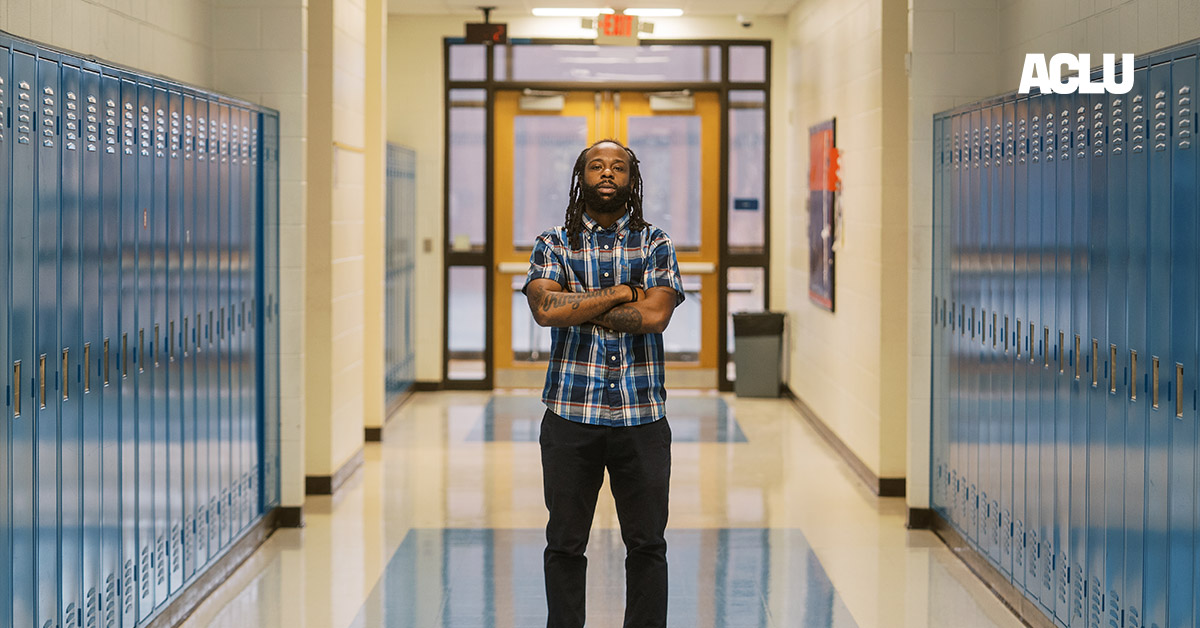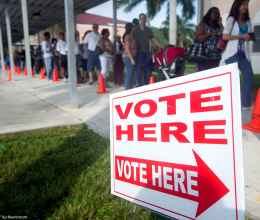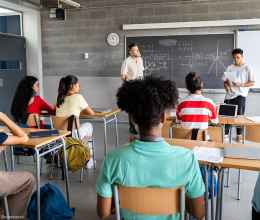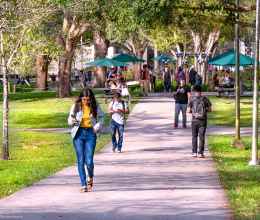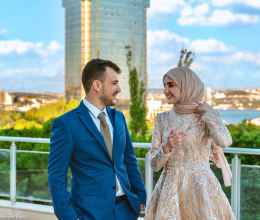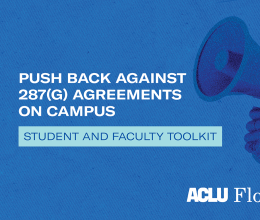
As classroom censorship bills sweep state legislatures, schools are removing books by and about LGBTQ people, BIPOC, and other marginalized groups from curriculums and libraries at an unprecedented rate. This year, more than 111 bills aiming to limit discussions about race and gender in the classroom have been passed or introduced in state legislatures. These efforts effectively erase voices, histories and lived experiences from students’ K-12 education.
In honor of Pride month, three LGBTQ rights advocates share how the recent surge of book bans and classroom censorship bills impact their work, and how they affect the students and teachers whose identities are under attack.
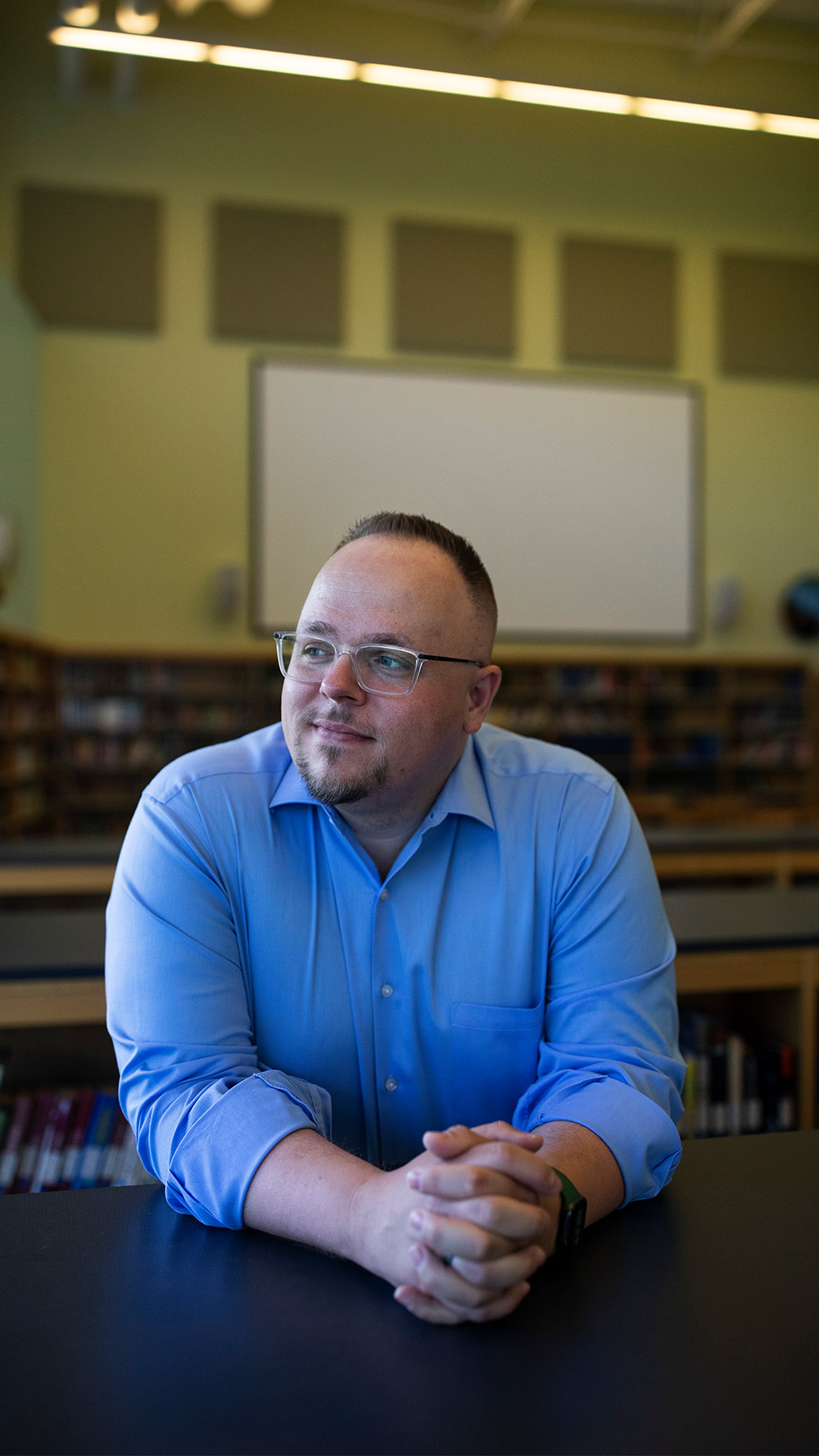
Credit: Maddie McGarvey
Jared Fox (he/him)
Director, Strategic Projects at Cleveland School District in Ohio and Founder at Iris Solutions
Books are incredibly powerful, and the fact that people are trying to ban them just speaks to that. Through books, we can see ourselves and the world around us — as Rudine Sims Bishop mentions, as a mirror, a window, or a sliding glass door allowing us to step into a different world.
As an English teacher, I tried to find books for the classroom that reflected the lived experiences of my students, whether they’re queer or not. I want them to see that they matter, not just in my eyes but in the words on the page. There’s something meaningful about seeing your experience published and bound in a spine.
There’s a fear that reading books with LGBTQ characters will make students gay. But I grew up reading about straight characters, with heterosexual parents, and somehow I ended up gay in this world. So if reading books is supposed to determine your sexual orientation, that woefully failed in my case.
Reading books with LGBTQ characters is important for everybody. Students are going to be better off in the world because of it. Books can expose readers to identities beyond the scope of people they know in their immediate lives — queer people with disabilities, queer people who are immigrants, queer people who wear a hijab — thereby building empathy and understanding of experiences different from their own.
When queer students are denied access to these stories, they lose a piece of their humanity.
For queer students, it validates their existence. When a community says a book is being banned from the library because of its LGBTQ themes, it’s telling students “there’s something wrong with you, there’s something that needs to be legislated or challenged, there’s something about you that is up for debate, that shouldn’t even be in a book.” It tells LGBTQ students they don’t even deserve to be on the shelf — literally and metaphorically. That can be very harmful to students’ self-esteem and the way they see themselves in the world. When queer students are denied access to these stories, they lose a piece of their humanity.
It’s also important to note that many of the books that are banned are also by authors of color, which shows our desire as a society to silence the voices of people of color. It’s yet another example of white supremacy at work. We cannot separate the work of LGBTQ equality from the work of anti-racism because the struggles are so closely intertwined. When we are working towards a better future for LGBTQ folks, we’re working towards a better future for people of color, too. And I think that’s important.
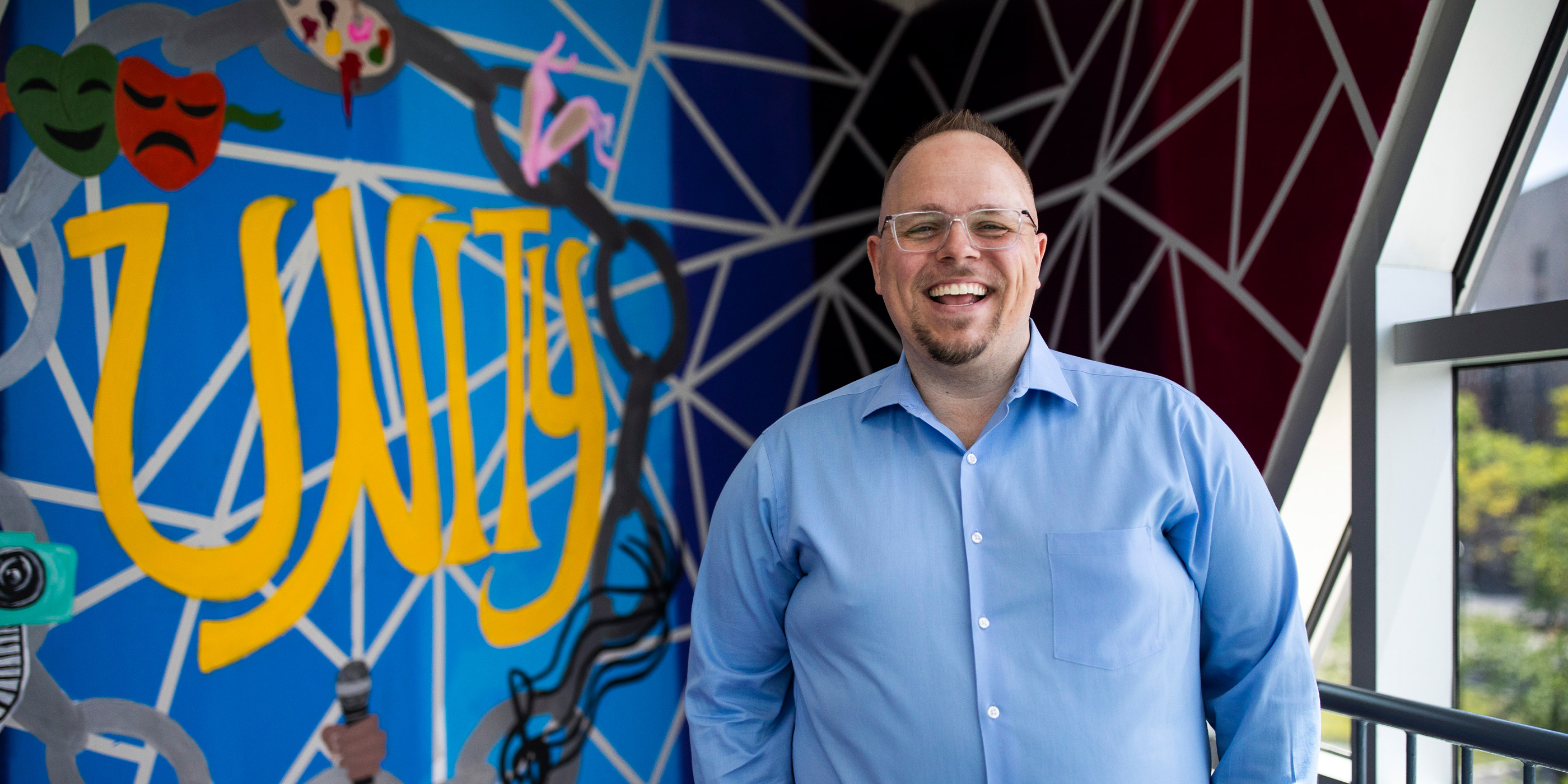
Credit: Maddie McGarvey
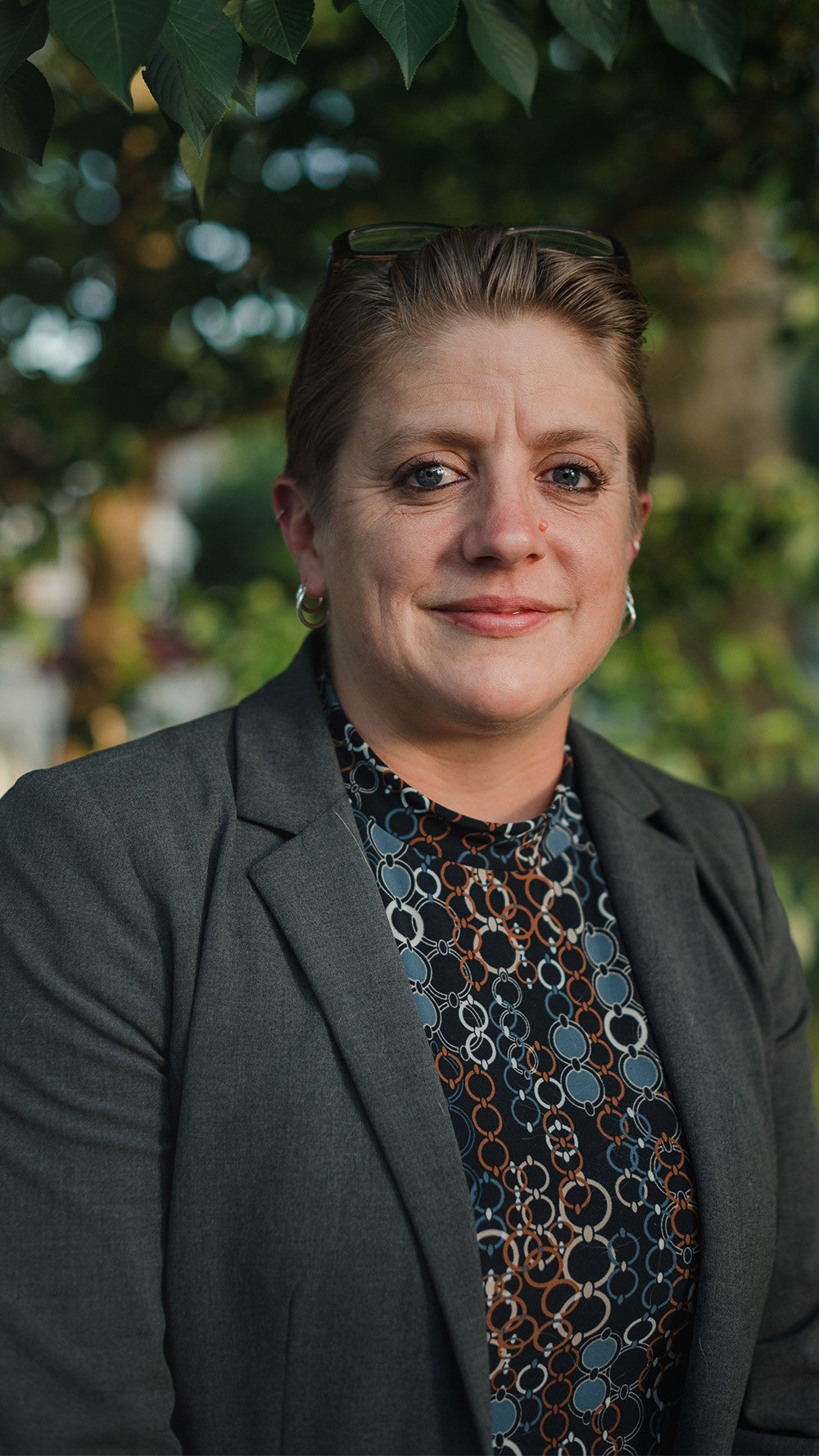
Credit: Hannah Yoon
Tiffany Wright (she/her)
Graduate Program Coordinator, Leadership for Teaching and Learning & Interim Chair of the Department of Educational Foundations at Millersville University in Pennsylvania
As a mother to a seventh-grader and a member of university faculty, I’ve seen firsthand how classroom censorship affects students and educators alike, particularly those who are LGBTQ. Teachers are worried they could lose their jobs if they teach books about race and gender, which shortcuts their efficacy as educators as well as their sense of personal well-being. And I can’t imagine it’s easy for young people to witness their own identity and existence being erased from school curricula.
Representation is so, so important. I know what it’s like to grow up unable to see yourself reflected in books or other parts of society and culture. During my childhood in the 1980s, I never saw a book reflecting experiences and identities like my own. It wasn’t until college that I found LGBTQ voices in literature — and even then, I had to seek it out. I think I would have had a very different experience growing up if I had been exposed to LGBTQ voices earlier in my education. For example, maybe I wouldn’t have had to go through adolescence twice — before and after coming out.
I’ve seen firsthand how classroom censorship affects students and educators alike, particularly those who are LGBTQ.
Exposure to diverse perspectives sets students up for success as future leaders in the world. It shows them how to treat and interact with people whose experiences are different from their own. It’s especially important at the elementary age. Kids should be able to read books that portray LGBTQ people and families as part of the fabric of our communities, not marginalized or erased.
Today, I’m amazed at how well LGBTQ kids are learning to navigate the world at such an early age — far younger than I was when I finally started figuring it out. I have a 14-year-old nephew who recently transitioned, and another child in the family came out as non-binary at age 12. Increasing representation of diverse voices in our books and classrooms helps build students’ confidence as they discover who they are.
As educators and students confront a continuing spate of classroom and library censorship efforts, it’s important to remain open and be kind to one another — even as parents keep showing up at school board meetings to yell about books. Instead of attacking others and pointing fingers, we should approach this issue from the base assumption that everybody wants the best for their kids. We must come together and try to find a middle ground that doesn’t shortchange a student’s education or harm LGBTQ students and educators.
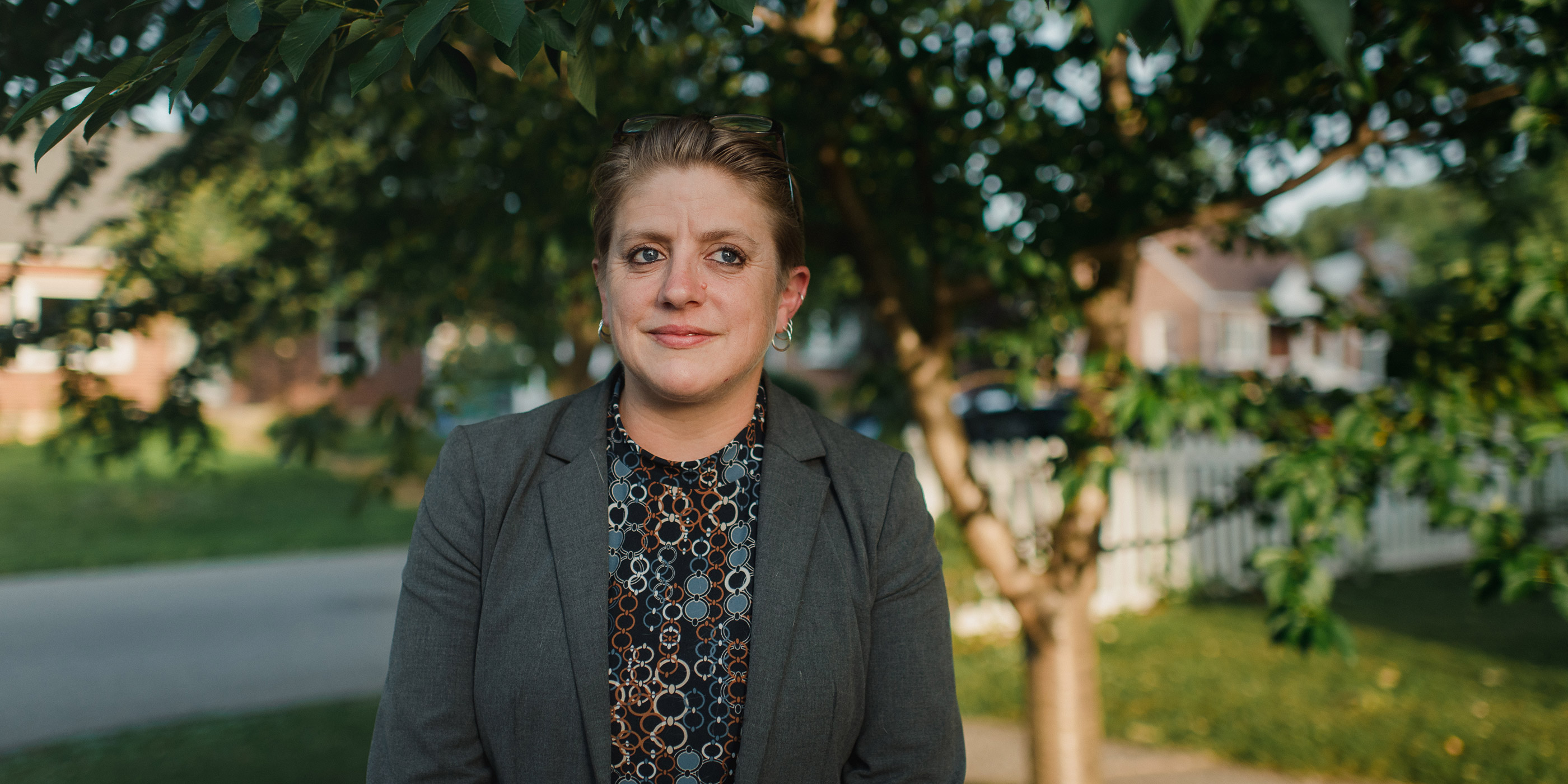
Credit: Hannah Yoon
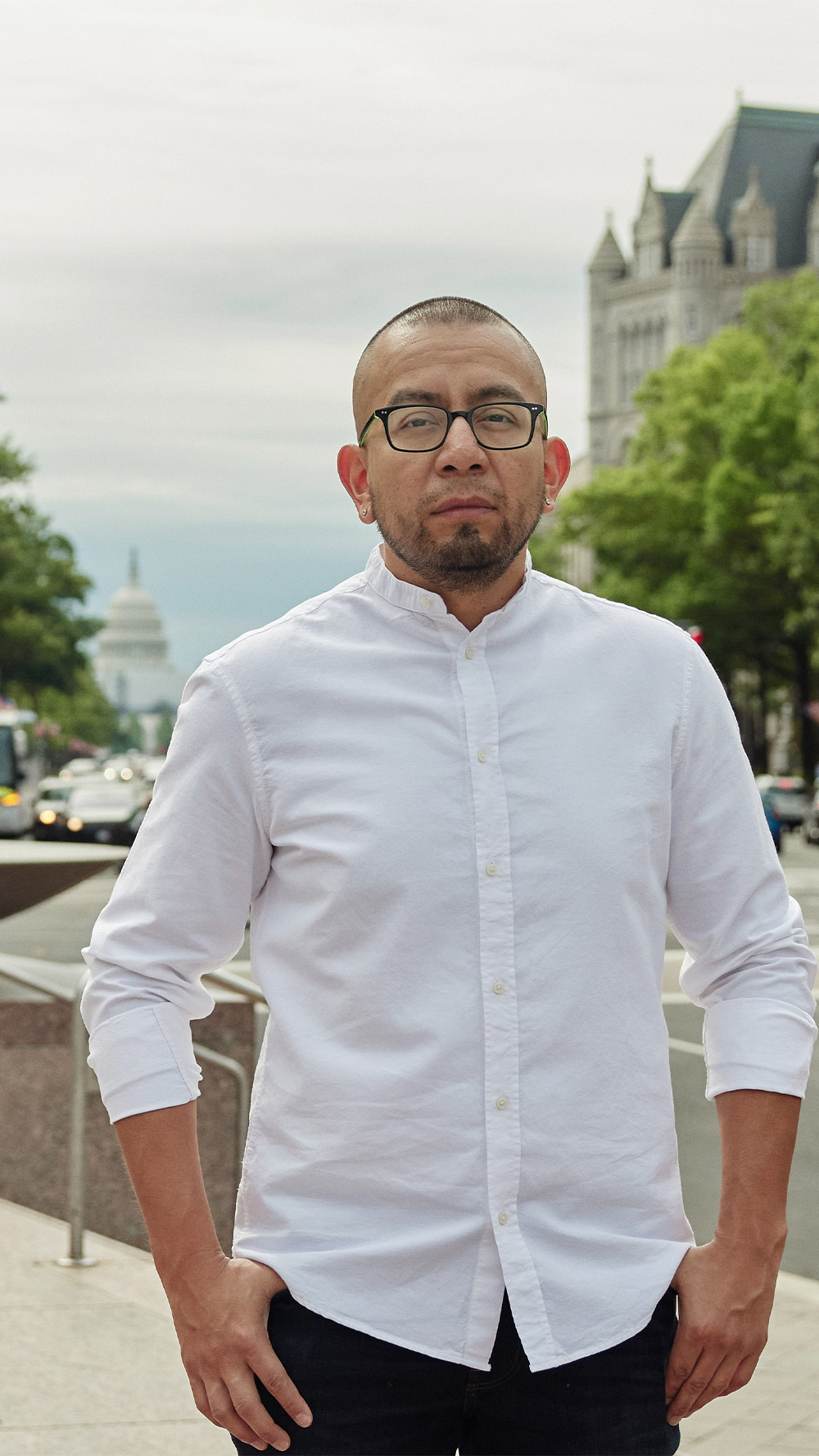
Credit: Will Martinez
The reason that I do the work that I do is because of what I learned in school. I grew up in New York and I was fortunate enough to have a program in junior high school called Council for Unity. It was a group of civically engaged young people learning about racism, conflict resolution, how to be vulnerable and share their life experience with their peers. We had a school field trip to the GMHC, an organization that taught me about the work of ACT UP — an activist group that was started in the 1980s to address the AIDS crisis. And I just fell in love with the idea that someone could use their individual power to change society. It was a profound realization for me — a moment of light that inspired me to continue a career in advocacy and volunteer work helping the LGBTQ community. That’s what led me to Equality Texas.
It’s not surprising that the majority of the books lawmakers are trying to ban and remove from libraries are books that center the voices of LGBTQ people or Black and Brown people.
Over the course of the 2021 legislative year, we had the most anti-LGBTQ pieces of legislation filed in Texas in the history of the United States. Although only one of those bills passed, the harmful narratives and manufactured moral panics that came with them are living on in school board meetings, where LGBTQ students are seeing their very humanity up for debate by those who are charged with their safety and education and in schools where books and symbols of support are being removed from classrooms — creating hostile school climates for young people. As a direct result, we started getting calls from all over Texas about escalating bullying, increased harassment and violence, and even the removal of safe space stickers and flags or posters. Since January 1, 2021, the Trevor Project has received close to 25,000 calls, texts or emails from young Texans in crisis.
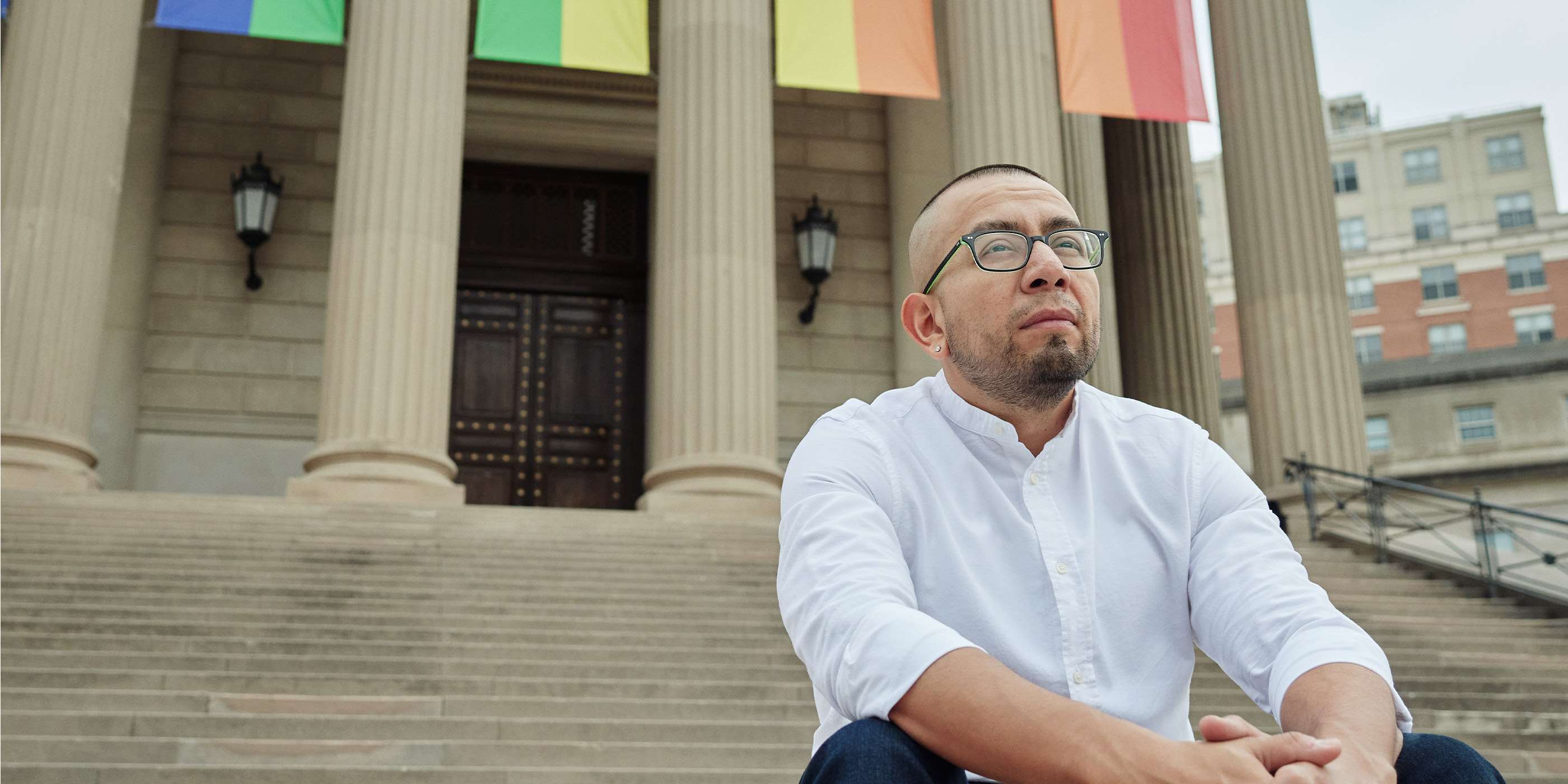
Credit: Will Martinez
Over the course of the 2021 legislative year, we had the most anti-LGBTQ pieces of legislation filed in Texas in the history of the United States.
It’s not surprising that the majority of the books lawmakers are trying to ban and remove from libraries are books that center the voices of LGBTQ people or Black and Brown people. I remember what it’s like to not see people like you in your textbooks, and to see homophobia from teachers, administrators, and peers. It added to a sense of fear about coming out, even though I already knew who I was by junior high. Going to the library was a joyous experience because I could find those stories I didn’t always have access to in the classroom — stories of LGBTQ people, of first or second generation immigrants like myself and my family. Seeing positive representations of people who looked like me thriving and creating families let me know that there was hope.
Inclusivity in the classroom is good for all students. It allows students to put themselves in the shoes of somebody with a different experience, fostering empathy and compassion. It gives LGBTQ students a sense of power and worthiness. Most importantly, it tells them that their stories matter.
Read more about students and teachers fighting classroom censorship.
